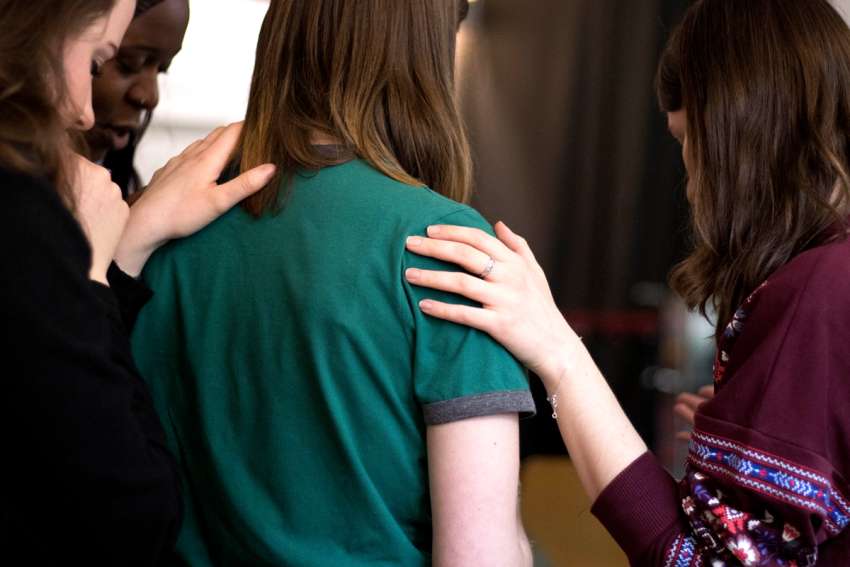Week after week, I showed up and found myself a little less broken than I was when I arrived, a little more connected to God, in different ways than I had been taught in church. My faith world collided with my recovery, and I fell deeply into the arms of the God of my understanding, a God who sets us free.
For me, post-partum depression settled into a deeper situational depression when I tried to take responsibility for everything that I perceived was wrong with my Church, which was also my employer. I found the 12-step support group at the (strong) suggestion of a therapist I was having trouble hearing.
As I freely chose to work through the steps with a sponsor, the first one was hard, but also obvious: We admitted that we were powerless — that our lives had become unmanageable. Nothing other than feeling completely unable to help myself in any other way would have compelled me to walk up the stairs to my first meeting.
The second and third steps were the hardest for me of all 12. The second reads: Come to believe that a power greater than ourselves could restore us to sanity. I believed in God, so surely I already believed this? My Church teaches that Jesus saves us, but I had been busy trying to be Jesus. No wonder I felt broken.
The third step changed everything: We made a decision to turn our will and our lives over to the care of God — as we understood Him. I have followed God my whole life, tried to follow. But somewhere along the way I gave over my own understanding. I became afraid that the God I met in my childhood was too merciful, too easy going, too free. I got tripped up thinking that knowing lots of stuff about God would mean that my will and my life would go the way I wanted it to. And that landed me under my desk on the phone with mental health services to see if they would check me in.
In all the most significant moments of encounter with a Divine Power I have called God, that God astonishes me with overwhelming love and sets me free. When I have wrestled with temptation, the God of my understanding has allowed me to make a choice, never restricting me from any possible option. When I have failed, the God of my understanding allows me to experience the consequences of my actions with compassion and without punishment. When I have asked for guidance, the God of my understanding speaks to me in ways that I can hear and offers me direction that finds a place of integrity in the deepest part of my soul — even when it is deeply challenging.
Both in communities of faith and in 12 step groups, I have found glimpses of this God who sets us free. I love to get to a place with people where it is possible to ask the question: “Tell me about the God of your understanding.” The God of my understanding is not afraid of our freedom but delights in it.
When my religious or spiritual practices, beliefs or communities begin to feel like a prison, I take a walk in Creation and ask the God of my understanding to set me (and us) free. It has been my consistent experience, as well as the deepest part of the faith I have inherited and love, that there is more love, more grace and more space in God than any of us can imagine. And I am struck with wonder that I do not need to be afraid of God, or myself. May it be so.
(Perrault works in Catholic health care in Saskatoon and writes and speaks about faith. Her website is leahperrault.com)


